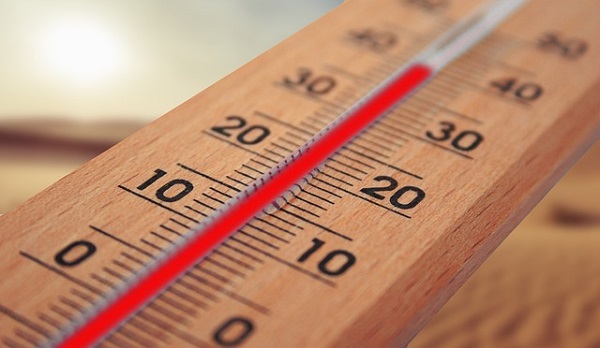 Credit: Pixabay
Credit: Pixabay
On Friday 29 December 2023, the national meteorological service AgriMeteo released its end-of-year assessments, which show that 2023 was the third hottest year ever recorded in Luxembourg.
Based on data analysed up to and including 27 December 2023, the year showed an average temperature of 10.8 °C, exceeding the average for the 1991-2020 reference period by 0.9 °C. All seasons except spring had above-normal average temperatures. Autumn 2023 was the second warmest ever measured (since records began in 1838), with an average temperature of 11.7 °C - up to 2.6 °C warmer (Luxembourg City) than the average between 1991 and 2020.
In terms of rainfall, after a dry period from May to early July, the months of October and November were particularly rainy. The meteorological autumn thus recorded excess rain varying between +65.2 mm (Luxembourg City) and +140 mm (Asselborn). Viewed over the year, the average level of rain (956.97 mm) recorded by the four reference weather stations exceeded the normal reference value by 24% (769.84 mm).
Global warming in Luxembourg
The report also compared records from the national meteorological service attached to the Administration of Technical Agricultural Services (ASTA) with the findings of the World Meteorological Organization, according to which 2023 was the hottest year ever recorded globally.
AgriMeteo has documented global warming in the Grand Duchy since 1838, using advanced climate measurements from a network of 39 automatic weather stations located in the four regions of the country. Note that 2022 was declared the hottest year ever measured by AgriMeteo in Luxembourg. According to AgriMeteo, human-caused climate change increased temperatures by 1.5 °C between 1861-1890 and 1991-2020 in Luxembourg, and the ten hottest years were all recorded during the period 2003-2023.
Impact on agriculture and viticulture
Extreme variations have impacted the development of certain agricultural crops over the seasons. The long dry period from late May to late July reduced yields of wheat, triticale and winter rye. The harvest started very early and although winter barley and rapeseed could be harvested with suitable yields, the continuous rain in August delayed the harvests of bread cereals, wheat and spelt in the northern Oesling (Éislek) region. Spring cereals particularly suffered in 2023. The corn harvest was of good quality thanks to summer precipitation. Potatoes gave average yields. Meadows and pastures had a particularly favourable year in terms of yield and quality, thus ensuring sufficient fodder reserves. In terms of viticulture, the heat brought forward the start of the harvest, but the excess rain forced winegrowers to sort between juicy and moldy bunches, and reduced the quantity of the grapes harvested. As in the previous five years, there was no ice wine this year due to global warming.









